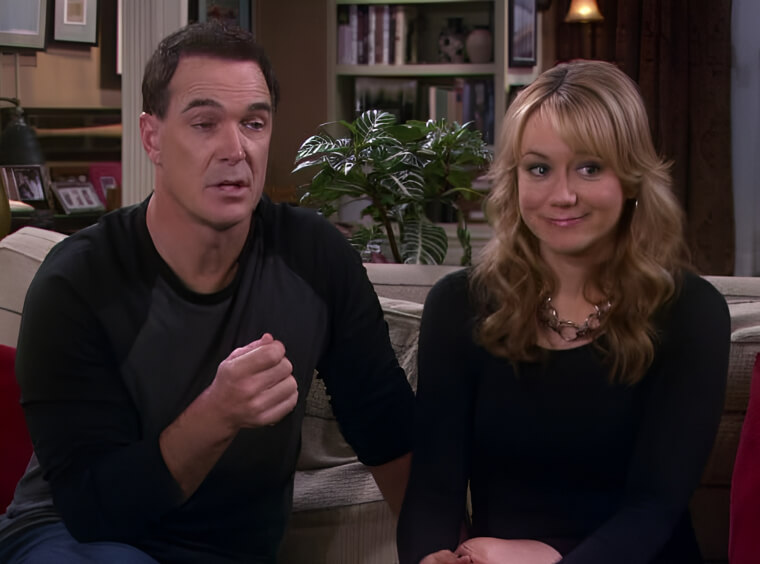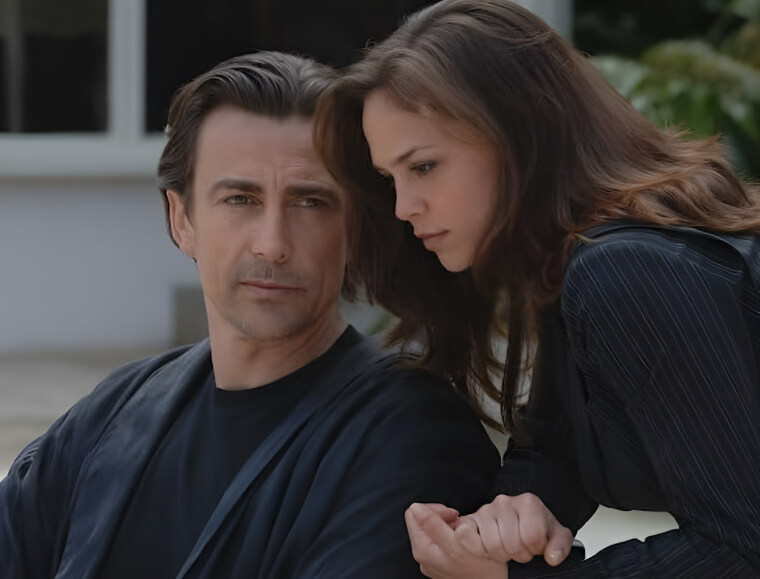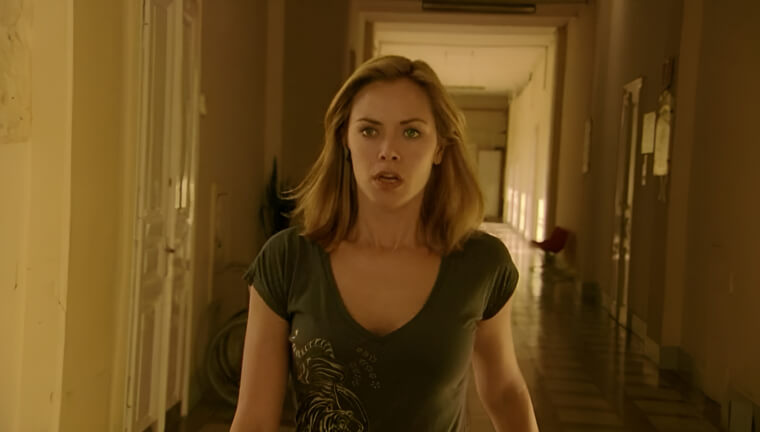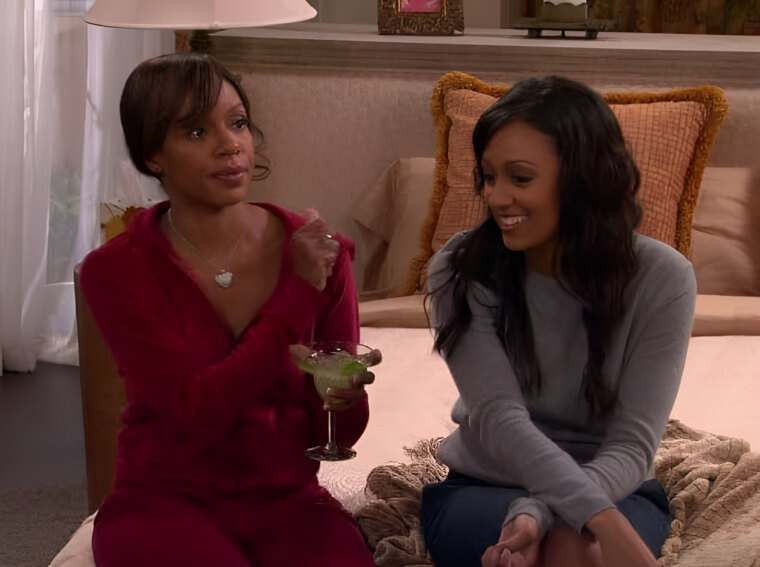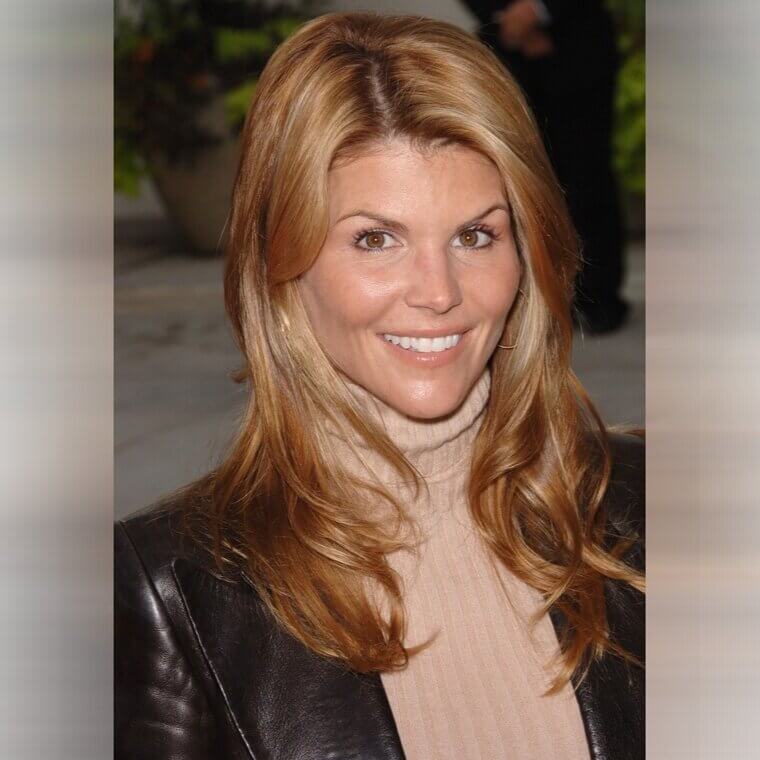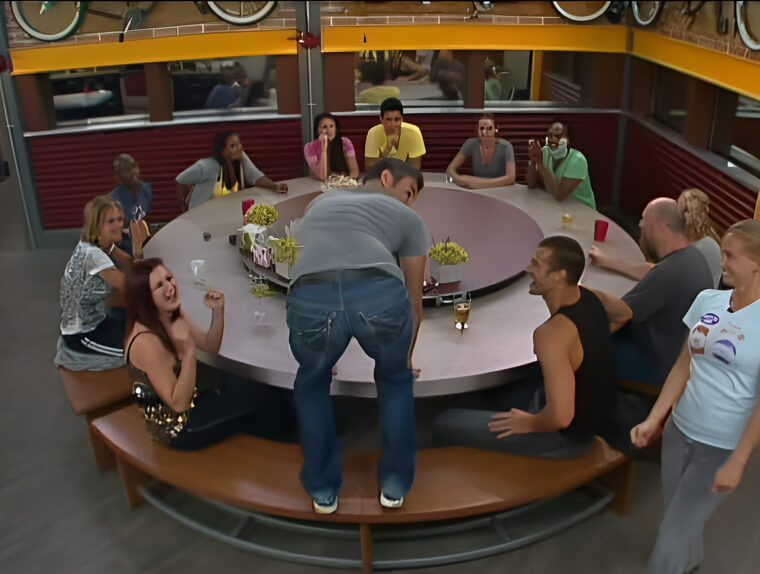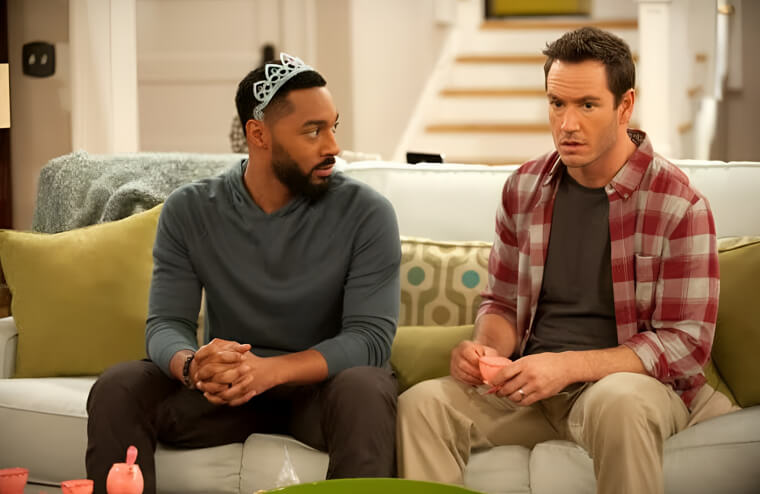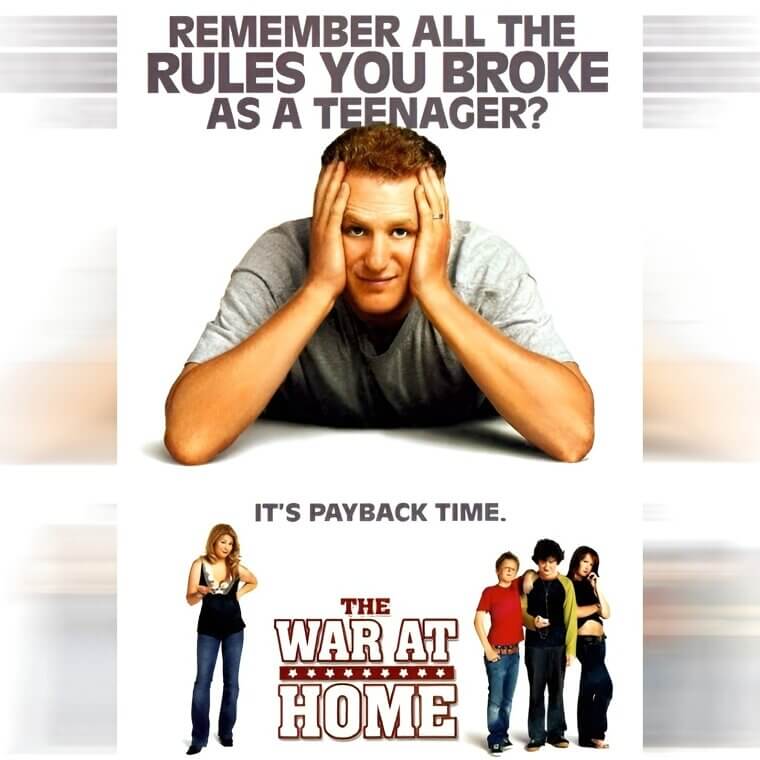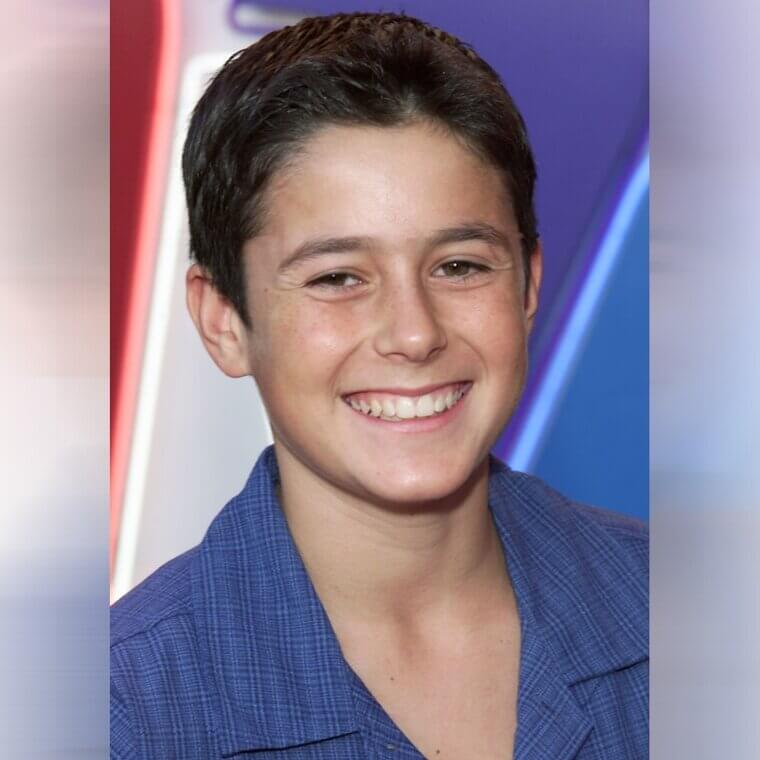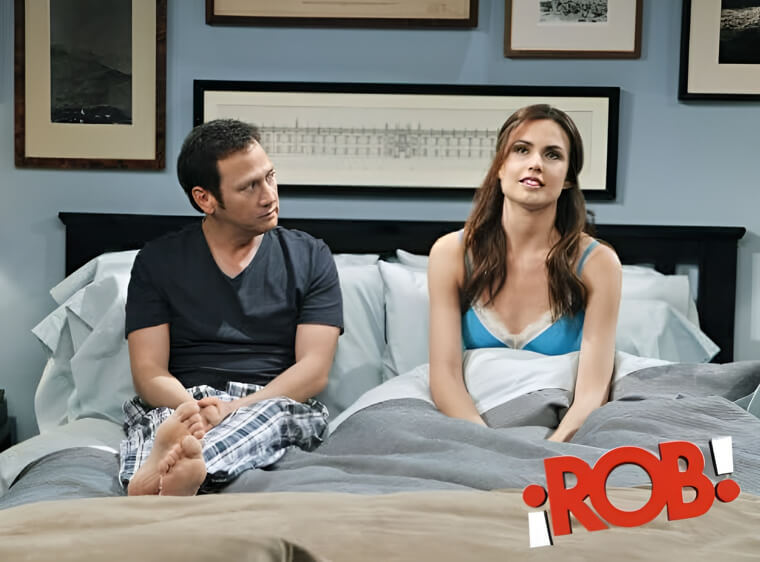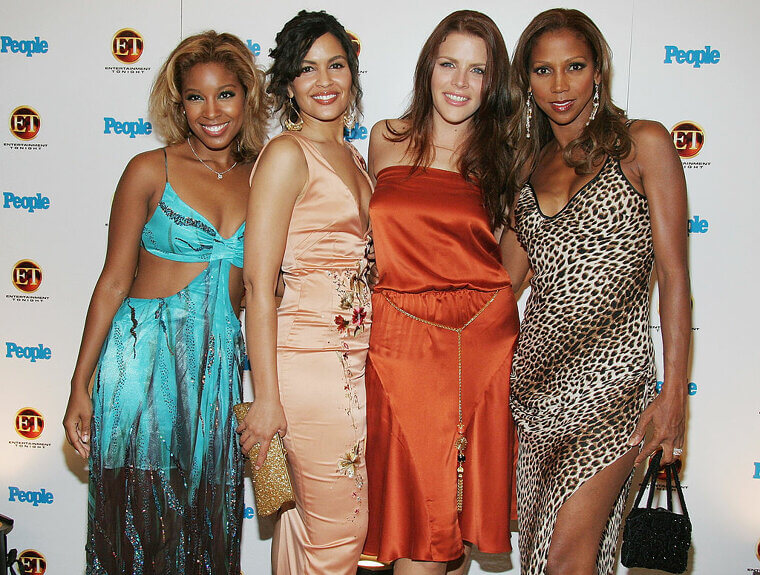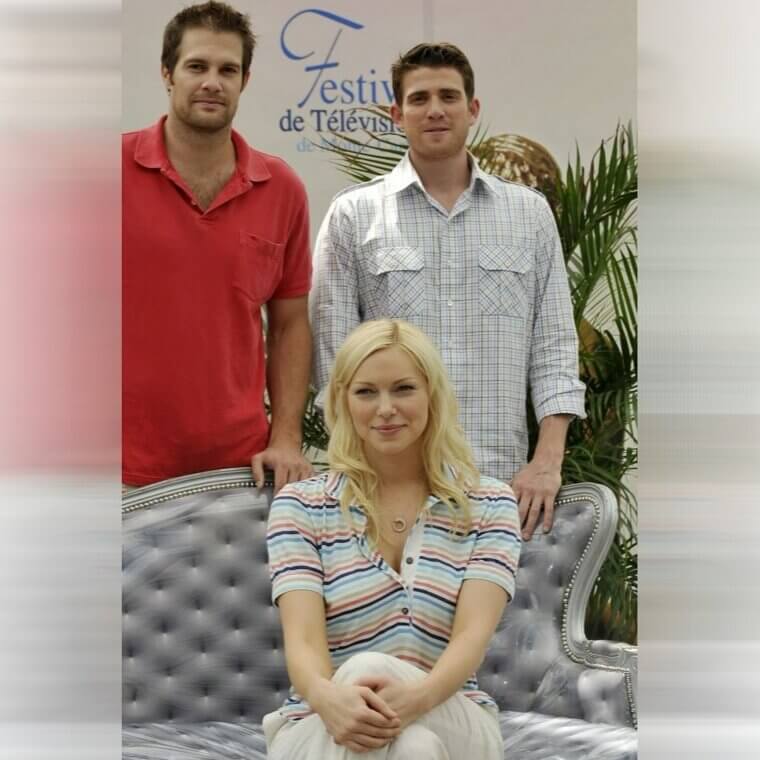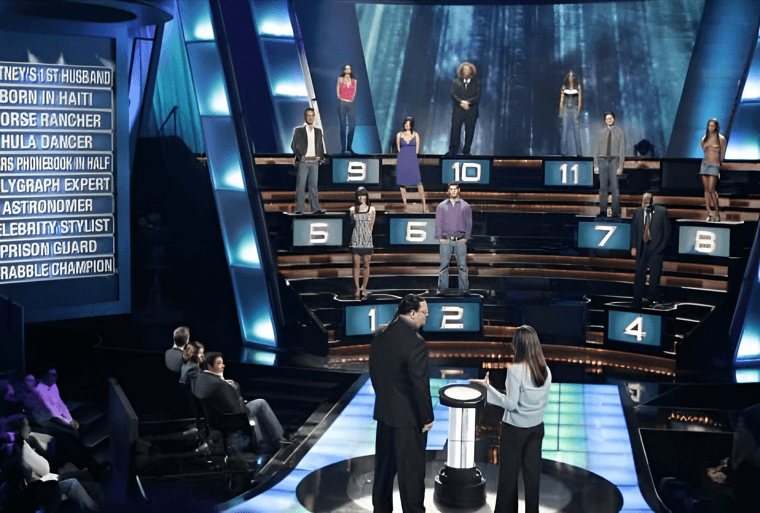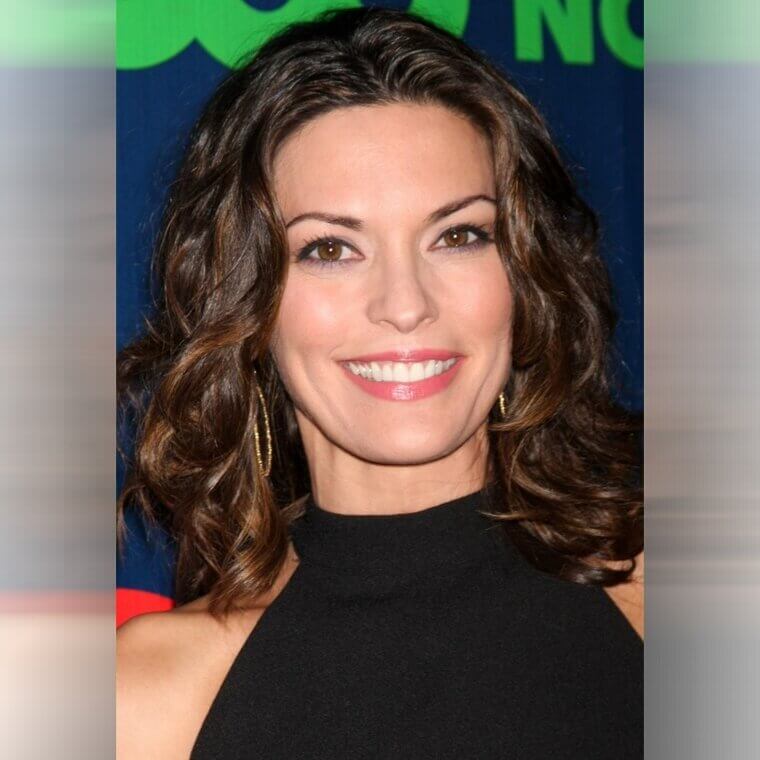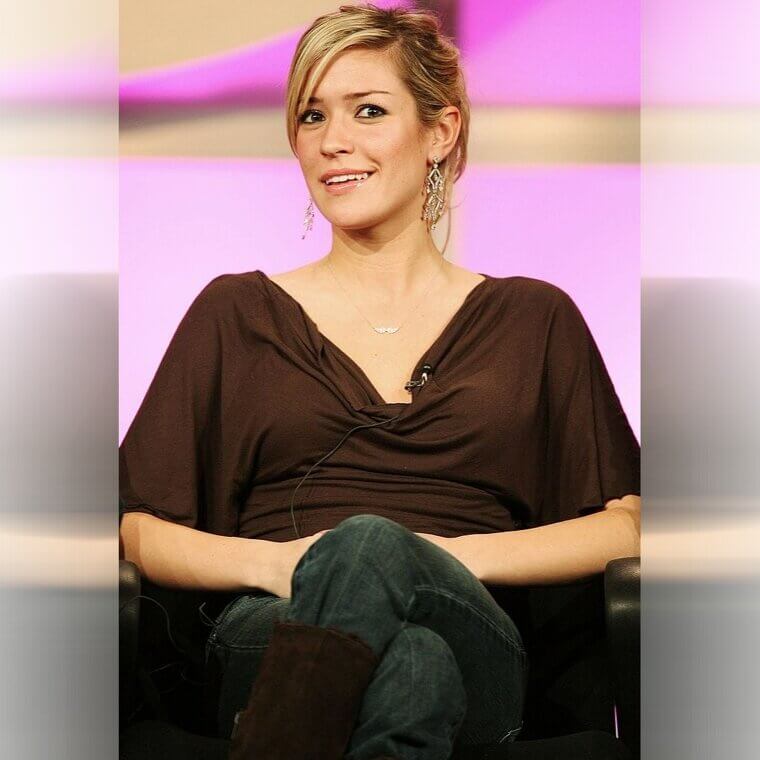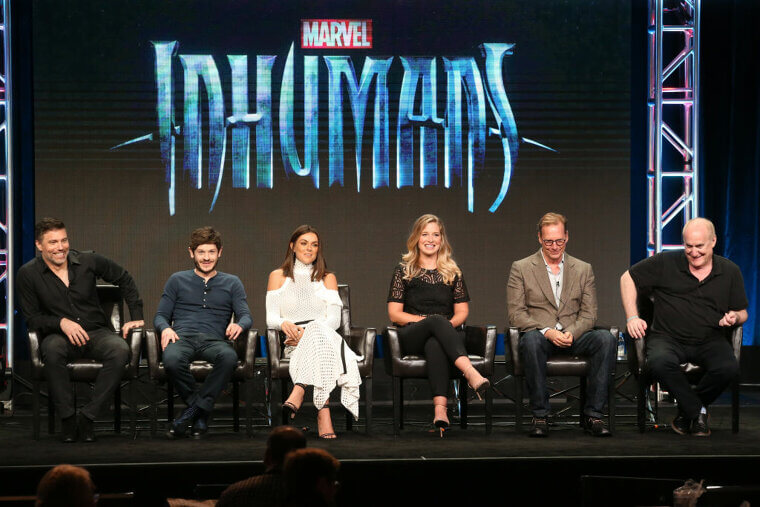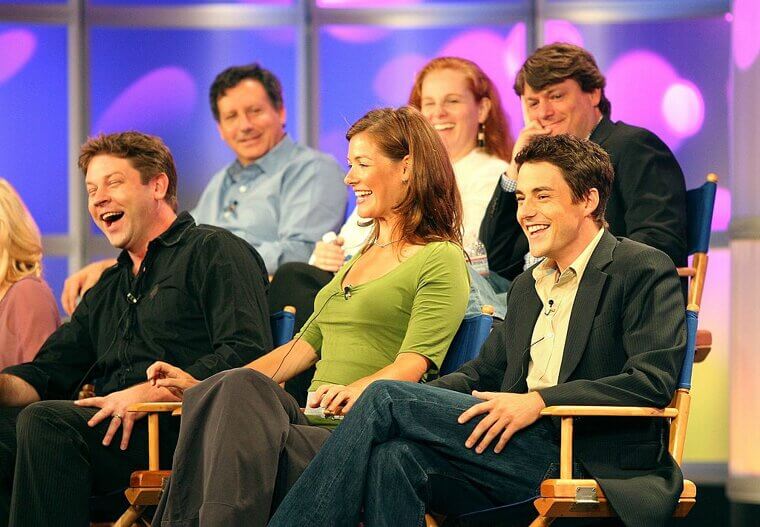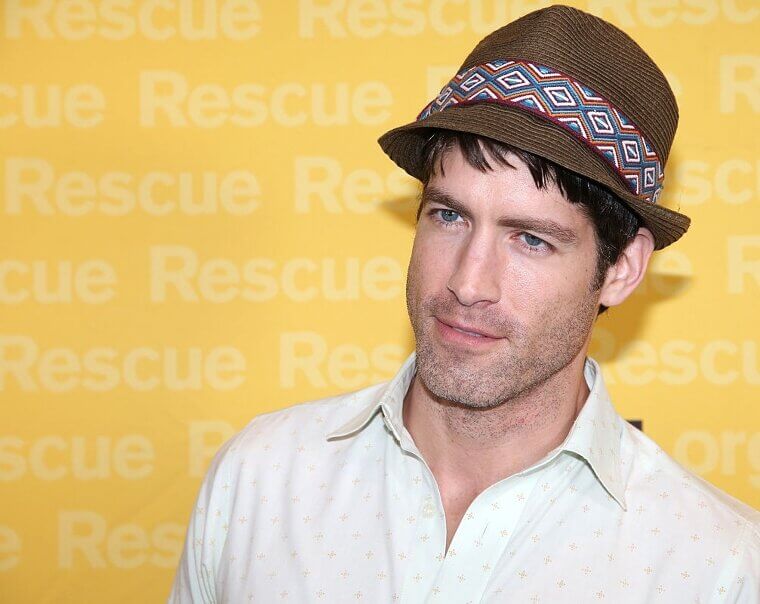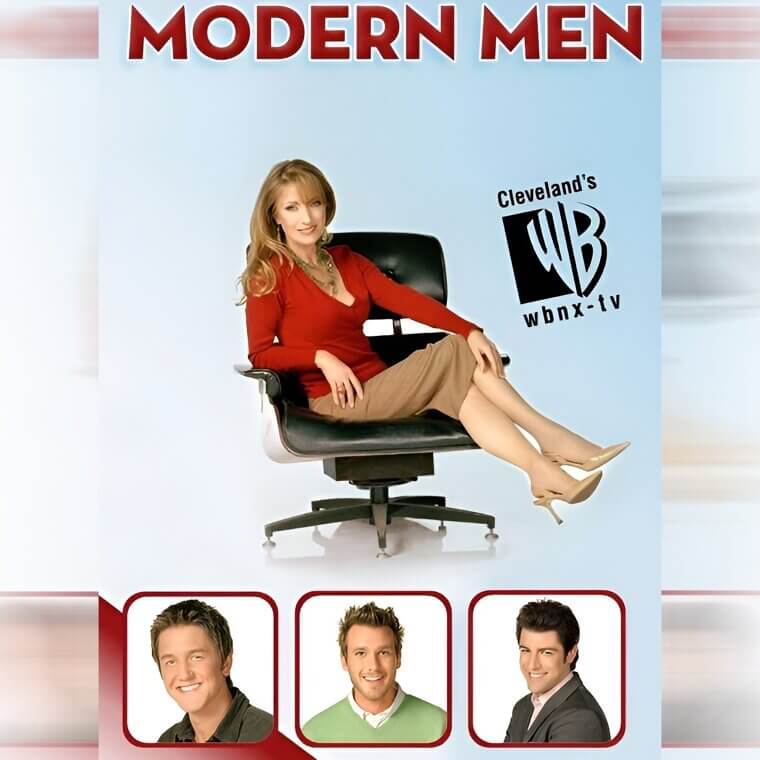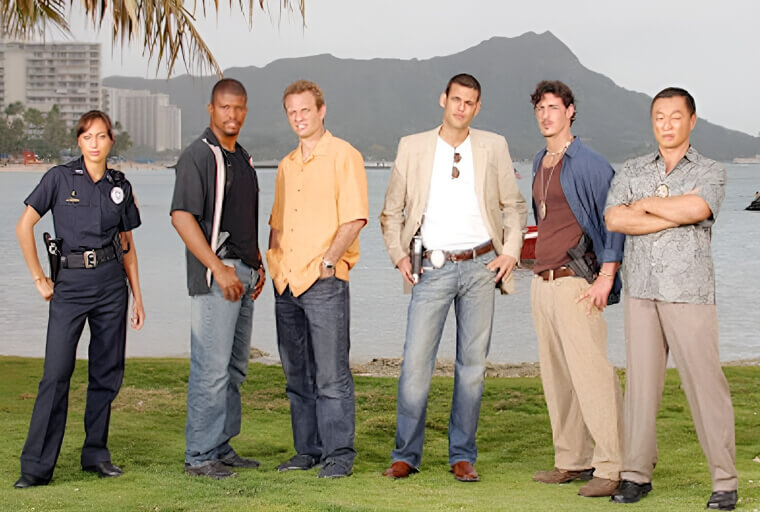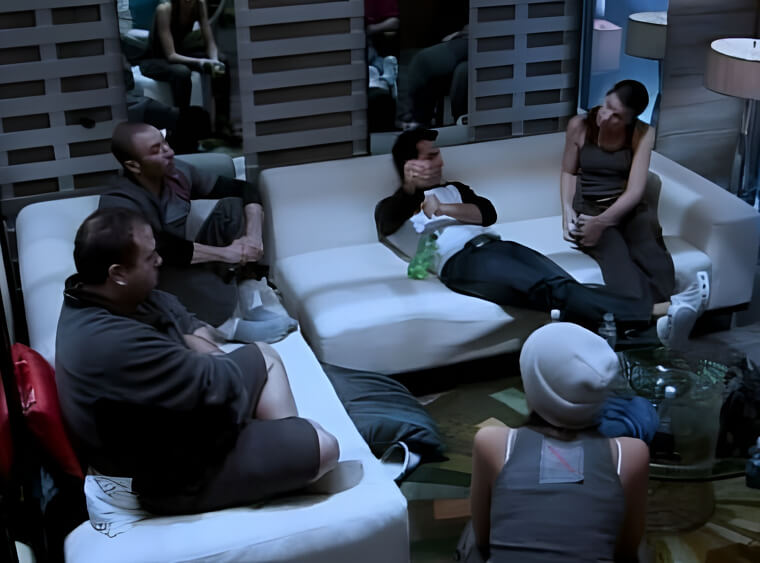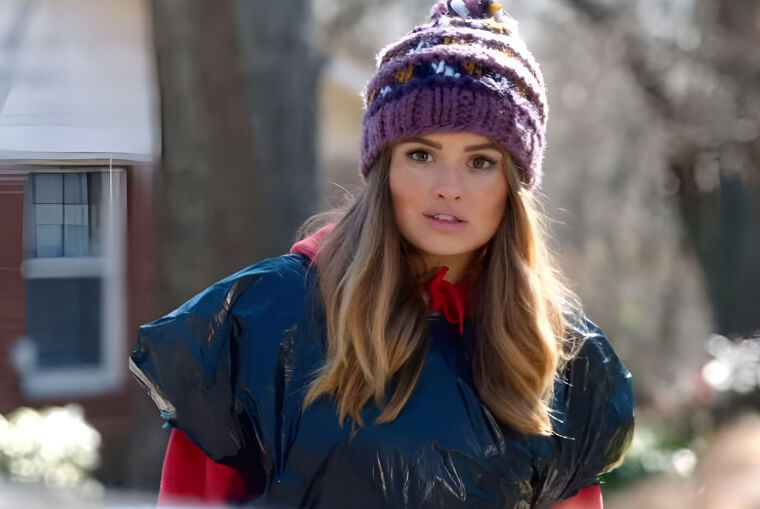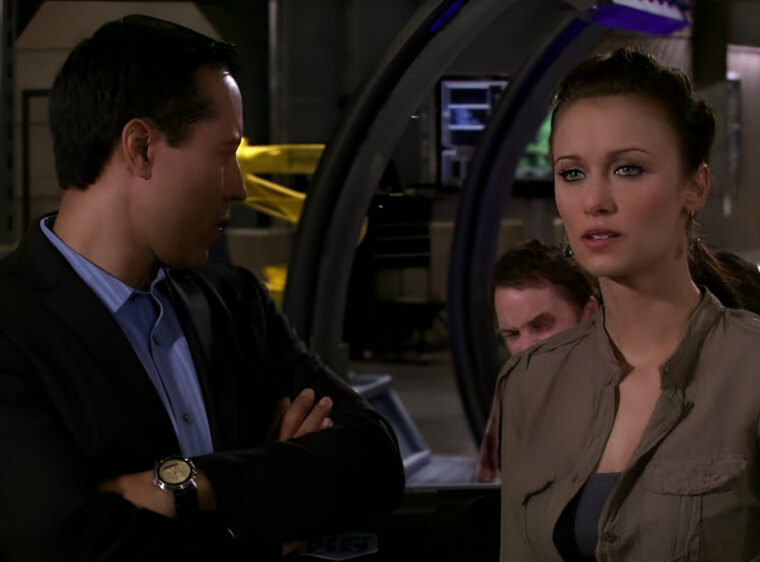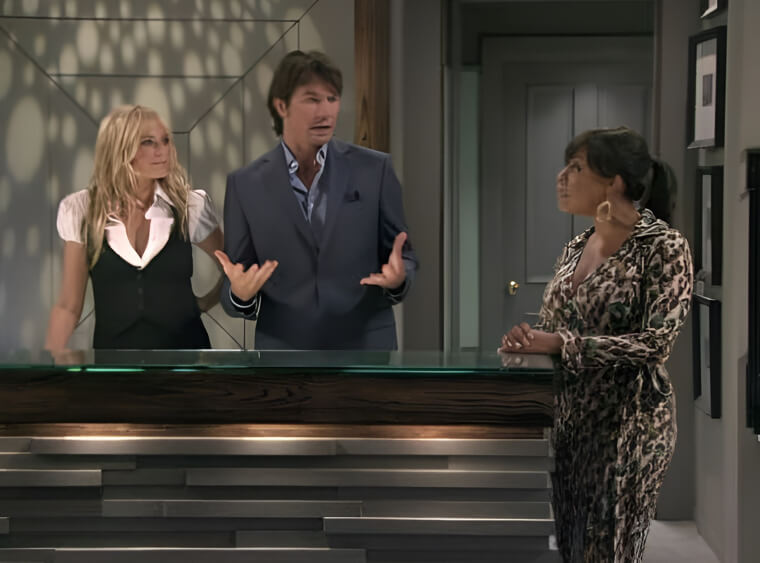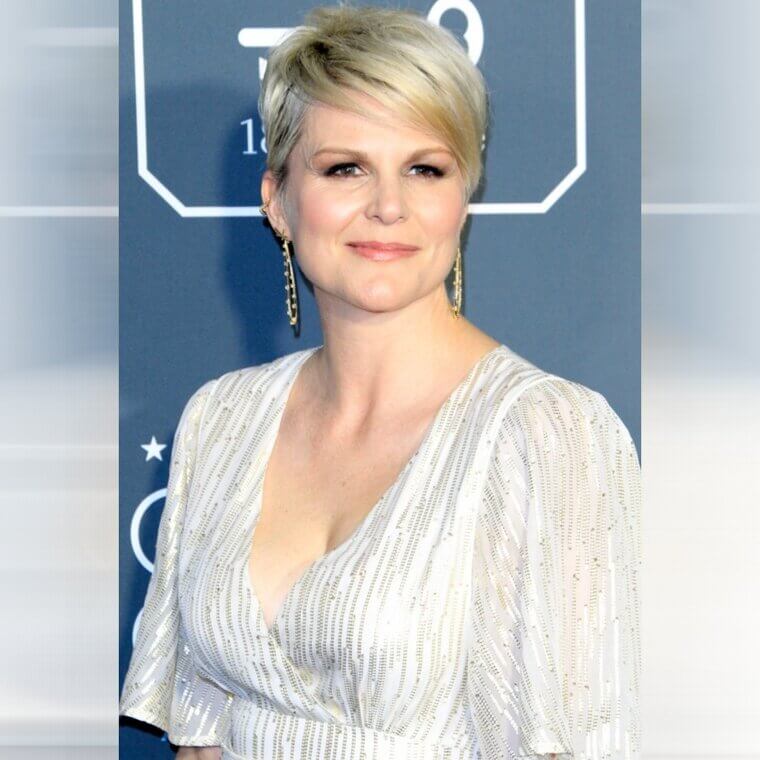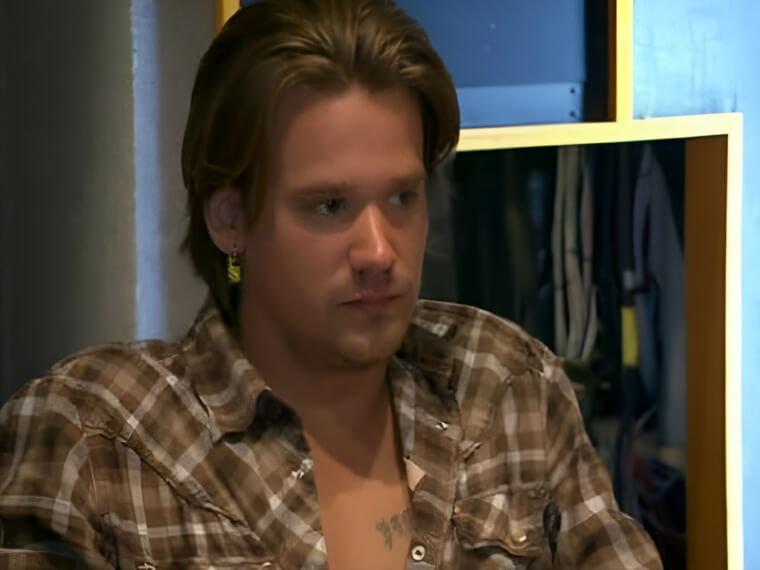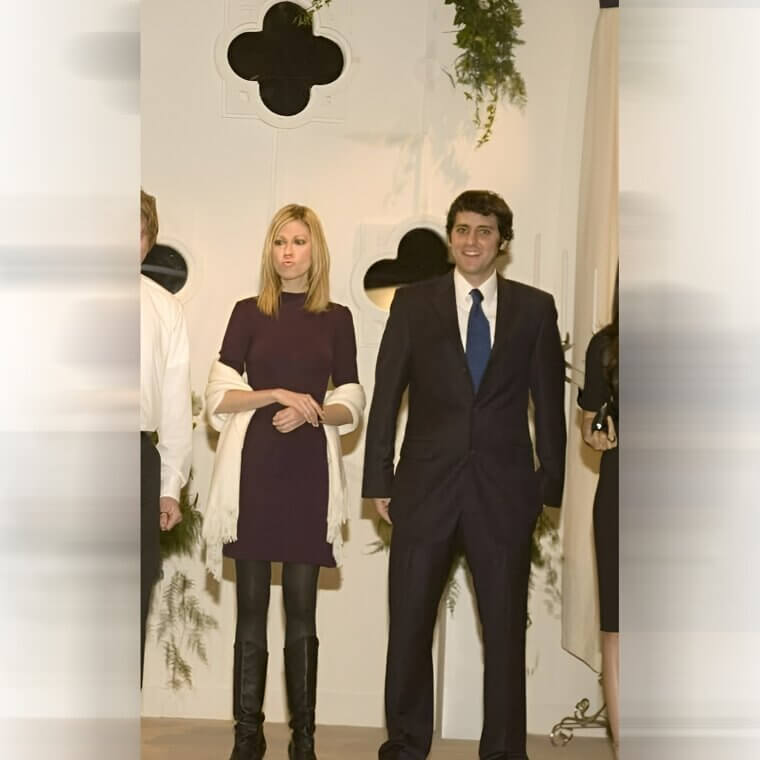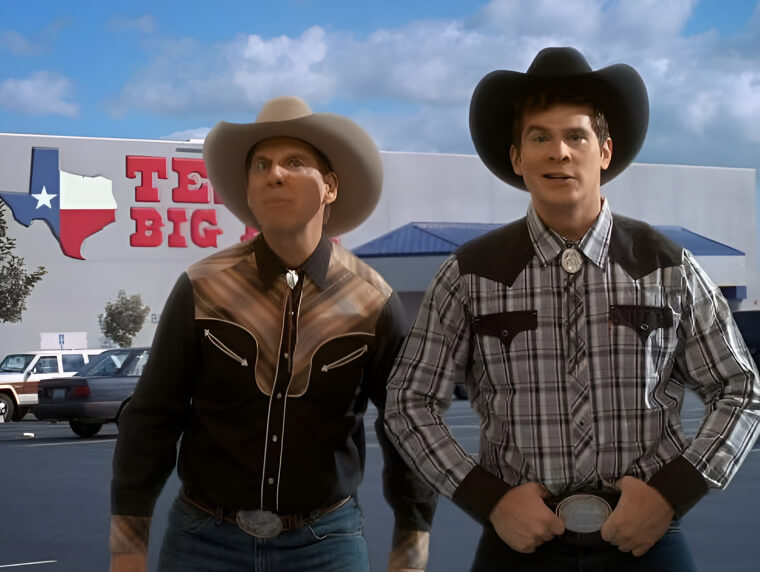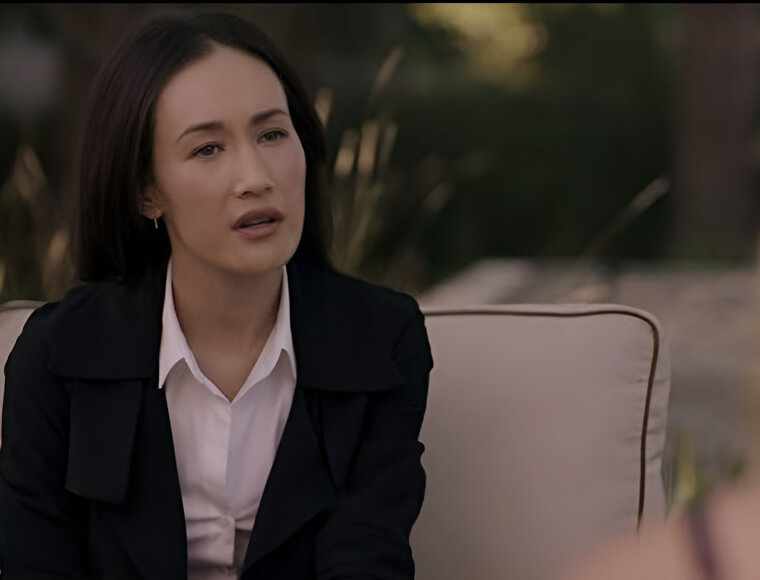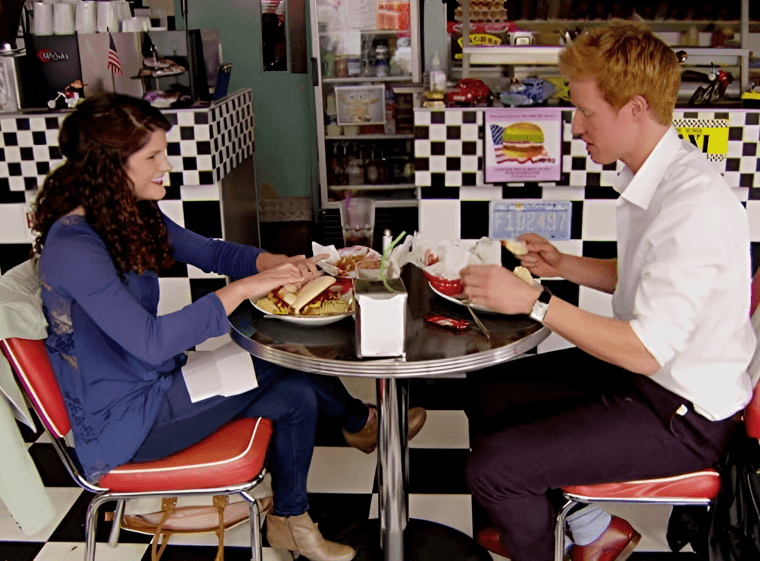35. Rules of Engagement
Rules of Engagement was a CBS original sitcom that ran from 2007 to 2013. It was created by screenwriter Tom Hertz, who had previously won a Primetime Emmy Award for his work on Dennis Miller Live, so things were looking promising for Rules of Engagement. However, the writing was one of the things that most people criticized, with NBC News calling the jokes “obnoxious”. The talented cast wasn’t enough to make viewers ignore the show’s lackluster and often unfunny plotlines.
But in spite of its shortcomings, Rules of Engagement ran for seven seasons, reaching an immense 100 episodes. It also received three Emmy nominations throughout its run, though the negative reviews persisted.
34. Desire
Desire had plenty of interesting plot points, including New Jersey mobsters, a love triangle, and rampant corruption and betrayal, yet it fell short with viewers and critics alike. Many of the complaints specified that the dialogue and acting were disappointing, and even its telenovela style failed to make an impact. The show ran for 65 episodes between September and December 2006. It was aimed at teenagers but failed to land with any regular audience.
Desire has an IMDb rating of 5.8/10 10. Despite its disappointing debut, some of its earliest episodes were rated highly, while its later episodes were more widely panned.
33. Painkiller Jane
As it was based on a popular comic book character and followed a successful TV movie, the 2007 Painkiller Jane television series had lots of potential. However, the various media versions that came before it were part of the problem because the show simply didn’t deliver on the same level. Though Kristanna Loken gave a high-action performance as the titular self-healing heroine, the writing fell short for many people, particularly when compared with the 2005 movie.
A review in the New York Times commented that Painkiller Jane relied on “shopworn gimmicks” and suffered from flat storylines that could have been improved with better writing.
32. The Game
No show that lasted for nine seasons can be deemed a failure, but the spin-off show The Game suffered due to comparisons with its highly successful originator, Girlfriends. Many fans of Girlfriends loved The Game as a continuation of that world, but some critics weren’t as fond of it. The Chicago Tribune felt it “played on the surface” of potentially interesting plots, and the Miami Herald called it “a hollow imitation” of Girlfriends.
Even so, The Game lasted far longer on air than most other shows on this list and was also nominated for a few comedy awards, so while it’s not favored, it doesn’t rank amongst the absolute worst.
31. In Case of Emergency
Sitcoms have proven profitable for decades, but many have left no legacies. ABC’s In Case of Emergency falls into the latter category and garnered a pretty poor reputation with critics and viewers alike. It only ran for one season, with 12 episodes shown on television and one unaired. ABC approved several shows for renewal in 2007, but In Case of Emergency was not one of them... And for good reasons!
The show was mostly criticized for a lack of humor in its writing and its cast of uninspired characters. Despite having likable and recognizable actors, this sitcom never took off.
30. Big Brother
Several countries have made their own versions of the reality television show Big Brother, which originated in the Netherlands. However, Big Brother USA is divisive. Unlike many other shows on this list, it’s still on air and is actually the longest-running adaptation of Big Brother. However, despite its loyal viewership, the show has several problematic aspects. A 2023 article in the New York Times highlighted racism as one of the most prevalent issues, resulting in much long-term controversy.
But nobody can deny Big Brother’s popularity. It has been running since 2000, has millions of yearly viewers, and garners plenty of attention online. Its format and content are controversial, but it produces results.
29. Truth Be Told
The 2015 sitcom Truth Be Told had good intentions, focusing on two diverse couples and emphasizing race-related issues, but it simply failed to create meaningful discussions within a comedy format. A Variety article called the humor “completely stilted” and criticized how important issues were handled “less aggressively” than in other shows. As a result, Truth Be Told was axed after just one season, with low audience approval ratings and poor critic reviews.
The cast of the show did a good job delivering the material, but the general consensus about Truth Be Told is that its writing let it down.
28. The War at Home
A few years before we had the excellent family-driven comedy Modern Family, another dysfunctional group of relatives hit American television: the Gold family. The War at Home ran from 2005-2007, following a Long Island couple and their three children as they navigated daily life and its struggles. Ultimately, Fox declined to renew the show after its second season due to its low ratings and many poor critical reviews of the writing.
However, the season two storyline involving Rami Malek’s character coming out was widely praised by critics and viewers, earning the show a Humanitas Prize nomination in spite of its otherwise negative reviews.
27. Tucker
Tucker is one show that, despite being fairly poorly received, had some charm. It featured a fourteen-year-old Eli Marienthal in the titular role and explored themes including divorce, love, and teenage woes. Though critics praised young Marienthal’s performance, the rest of the show didn’t fare so well. A Variety article compared it to Malcolm in the Middle and The Wonder Years but without the same “crafty storytelling”. It relied more on double-entendres and over-the-top character portrayals.
Tucker was aimed at a teenage audience but didn’t quite succeed. As a result, it was canceled in the same month that it premiered, ending any talk of future seasons.
26. Rob
Rob Schneider is a stand-up comedian who is particularly well-known for his work on Saturday Night Live during the 1990s. However, his 2012 sitcom Rob, which hit screens as a mid-season replacement for Rules of Engagement, was poorly received. Critics lambasted its writing, particularly its use of Latin and Mexican cultures to make surface-level jokes. A review in USA Today called Rob a “second-rate” comedy with poorly acted characters.
Schneider designed the show as a semi-autobiographical account of his life, but he failed to make it a successful on-screen comedy. As a result, it was canceled after just eight episodes.
25. Love, Inc.
Love, Inc. was one show that took the idea of matchmaking and turned it into a fictionalized sitcom rather than a reality show. However, it only lasted a single season due to a lack of viewers, though some of its reviews were favorable. Its cast of multi-ethnic actors was praised, but its writing failed to inspire the necessary laughs. The main character, Denise, played by Busy Philipps, was also compared to other more relatable comedy leads.
When Love, Inc. failed to net a reliable audience, it was canceled in 2006. Its storylines simply weren’t interesting or original enough to propel the plot forward against competition.
24. October Road
The 1996 comedy-drama film Beautiful Girls featuring Matt Dillon and Natalie Portman received great reviews, so surely a television series set in the same universe should yield the same success? Unfortunately, that wasn’t the case for the 2007 television series October Road. The story, which followed a writer reconnecting with his former girlfriend, lasted for two seasons before being canceled due to low audience ratings, with the New York Times calling it a “kind of bad soap opera”.
After hearing that ABC had not renewed October Road, writer and creator Scott Rosenberg filmed a 10-minute finale with the cast to give the show an ending, though a third season had been planned.
23. Identity
Game shows tend to always have an audience, but the 2006 NBC show Identity proved that that isn’t necessarily true. It was hosted by magician Penn Jillette of Penn & Teller and required contestants to work out which facts pertained to which other contestant’s identity in order to add money to the jackpot. Despite starting out strong, ratings declined over the course of the first season, prompting NBC to cancel the planned second season.
Though Identity attempted an original game show premise based on snap judgments, it fell short with critics. The New York Times critiqued its lack of tension and how it risked stereotyping the contestants.
22. Criminal Minds: Beyond Borders
Fans and critics alike consider Criminal Minds to be an excellent show, with consistently high viewership throughout its run on CBS. However, one of its spin-offs, Criminal Minds: Beyond Borders, failed to achieve the same success. It followed an FBI team investigating American cases in other countries but lacked any compelling storylines or characters. CBS’s scheduling of it to play immediately after the original Criminal Minds did not help.
The Los Angeles Times lambasted how the show played on “xenophobic travel fears”, with American tourists being horrifically victimized in other countries. Criminal Minds: Beyond Borders only made it through two seasons.
21. Get This Party Started
There are some reality shows that most people have never heard of because they were so short-lived, and Get This Party Started is definitely one of those. It ran for just two episodes in 2006 before being canceled due to spectacularly low viewership. The premise involved a team of celebrity event planners helping weekly guests throw lavish surprise parties. It has a Metacritic score of 26%, with reviews calling it “uninspired”, “phony”, and lacking “IQ points”.
In the 2005-2006 roundup of 156 major broadcast shows, Get This Party Started ranked 156th. It was shown quite late, when viewership tends to be low, and failed to entice a wider audience.
20. Inhumans
Marvel has enjoyed otherworldly success in movie theaters for over a decade, though some of its more recent television ventures haven’t fared as well. One of the worst Marvel TV shows has to be 2017’s Inhumans. Many fans were excited for next-level blockbuster action, but the show didn’t perform well. The majority of viewers criticized its weak plot and mediocre characters. IMAX blamed its poor reception on a “misalignment of customer expectations.”
Despite enjoying a two-week premiere on IMAX screens, television network ABC canceled any future seasons of the show the following year, considering it a box office failure.
19. Killer Instinct
With a title like Killer Instinct, Fox’s 2005 crime drama had the potential to be a hugely suspenseful and intriguing series. However, it ended up being axed by the network after just nine episodes. Critics were particularly harsh on the series, with the Miami Herald calling it “a mess” and the Chicago Tribune branding it “wantonly grisly” and “exploitative”. The plot often featured gruesome crimes that were too much to stomach for many people, contributing to low viewing figures.
There were originally 13 episodes of Killer Instinct planned, but only nine ended up being aired in the US, with the other four airing in the UK. Even being broadcast in other countries couldn’t save the series.
18. Happy Hour
Married screenwriting duo Jackie and Jeff Filgo were featured on the writing team of That ‘70s Show, but they weren’t able to work the same magic on Happy Hour, their 2006 sitcom. 13 episodes were made, but only four ever aired. It had a good premise, with the main character navigating love and life after losing his girlfriend and his job, but didn’t deliver the humor needed to guarantee a sitcom’s longevity, with a Variety article calling it “virtually laugh-free”.
The show was initially put on hiatus due to negative reactions and low viewership, but Fox ultimately decided to cancel it before the final nine episodes could air.
17. The Trouble With Normal
The Trouble with Normal attempted a different spin on the typical sitcom plot of a dysfunctional group of friends, but the idea never really took off. After only six of the filmed 13 episodes were aired in the US, ABC axed the show. The main storyline, which followed four paranoid young men attending the same therapy group, was called “a legendarily bad TV idea” by a review in USA Today. The Chicago Sun-Times branded the show “the worst sitcom of the fall”.
The biggest problem with The Trouble with Normal was its premise, which wasn’t the relaxing, fun plot that mainstream sitcom audiences generally look for, so it failed to achieve the success of other 2000s comedies.
16. Modern Men
One of the biggest problems facing comedy shows is creating a cast of characters that audiences will fall in love with. Modern Men, which premiered on The WB Television Network in 2006, failed to do this, and the show ended up being discontinued after its first season. A review published in Variety referred to the main three characters as generic “twentysomething guys”, with the female characters being used as “oversexed sitcom props”.
Modern Men was produced by Jerry Bruckheimer as his first situation comedy. He went on to have much more success producing comedies like the Beverly Hills Cop and Bad Boys franchises.
15. Hawaii
After the amazing success of the CBS police procedural show Hawaii Five-O in the 1960s and 1970s, NBC attempted to create a similar crime drama in 2004: Hawaii. However, the name was the only thing it had in common with Hawaii Five-O, and it was canceled after one season on air. The New York Times heavily critiqued the dialogue as “stilted” and the cast as a “macho ensemble.” Viewers who expected Hawaii Five-O were disappointed.
Ultimately, Hawaii was burdened by the success of the show that inspired it. This led to many unfavorable comparisons, which highlighted how lacking its plots and characters were.
14. Unan1mous
Unlike other reality television shows, Unan1mous had a pretty unique premise. It involved locking nine contestants in a bunker with no external contact until they unanimously decided who most deserved the prize money. However, the show failed to net a wide enough audience and was discontinued after its first season. One of the biggest criticisms was the shortness of the episodes, which were only 30 minutes long. The Washington Post particularly attacked Unan1mous’s “reality show gimmicks”.
However, despite its short run and negative critical reception, Unan1mous inspired several other countries to produce their own versions of the show. Its unique reality show premise was absolutely its selling point.
13. Insatiable
The 2018 dark comedy-drama Insatiable had an interesting premise; it was based on a 2014 article called “The Pageant King of Alabama”, written by Jeff Chu. However, it was widely panned for many controversial reasons. Though its over-the-top look at fat-shaming and teenage life won over some fans, critics condemned its dark jokes about abuse and the way it stereotyped certain minorities, including African Americans and gay people. The use of a fat suit for a thin lead actress also drew many complaints.
Ultimately, Insatiable was canceled after two very divisive seasons. Some people loved its dark humor, whereas others found it to be in poor taste and trivializing important real-life issues.
12. Sex Box
Sex Box first hit television screens in the UK in 2013, and despite its divisive premise, which involved couples having sexual discussions after completing the act inside a “sex box” on a stage, it gained some praise. However, the 2015 American version of the show received only negative reviews, primarily due to its lack of depth and resistance to fully exploring the subject matter. The hosts and experts featured on Sex Box were also branded “annoying”.
While the British original ran for two seasons, the American version only lasted for five episodes before it was canceled. Its explicit material was one of the main reasons for its lack of success.
11. Knight Rider
Though most people will recognize the title, this isn’t the Knight Rider they’re thinking of. The original Knight Rider series from 1982 may have had mixed reviews, but it made an impact. By comparison, the 2008 sequel series is entirely forgettable. Justin Bruening played a decent action hero, but the show was ultimately let down by its writing. The Los Angeles Times called it “undemanding” and “unsophisticated”, and the Pittsburgh Post-Gazette dismissed the plot as “car porn”.
After a slew of negative reviews, NBC reduced the number of episodes in the season from 22 to 17, then axed it entirely. Even Val Kilmer in a voice-acting role couldn’t save it.
10. $#*! My Dad Says
William Shatner achieved immense fame for his role as Captain Kirk in the Star Trek franchise, so it was rather a fall from grace when he appeared in the widely-panned CBS sitcom $#*! My Dad Says. Shatner portrays an angry and politically incorrect man named Ed, who spends the entire show ranting. There was controversy around the title’s censored expletive and much criticism of the lazy writing, terrible jokes, and even Shatner’s performance.
After its first season aired in 2011, CBS canceled the show. It was replaced by Rules of Engagement, which would also face strong criticism, though for some different reasons.
9. Do Not Disturb
Many shows are canceled after their first season, but very few are axed after just three episodes. Yet that’s exactly what happened in 2008 when the new Fox sitcom Do Not Disturb failed to deliver, leaving two additional episodes unaired. The plot centered around a New York City hotel and all the things witnessed by its employees. However, it didn’t have a strong enough premise to inspire high viewership, nor good enough plots for critics to praise.
In just three episodes, Do Not Disturb was deemed bad enough to be called “woefully unfunny” by Variety and “both bad and offensive” by the Baltimore Sun.
7. The ½ Hour News Hour
With comedy shows like Saturday Night Live and The Daily Show seeing great success from satirizing politics, The ½ Hour News Hour had some great formats to follow. However, its attempts to satirically portray conservative political ideologies didn’t pay off, which led to viewing figures plummeting and a same-year cancellation. Vulture criticized the show’s “lack of self-awareness” and “handholding style of comedy”. The series couldn’t quite decide on its ideal target audience.
Satire is a difficult style of comedy to nail, and centering a show around politics requires precise attention and handling. Unfortunately for The ½ Hour News Hour, they didn’t manage either.
6. Sons of Hollywood
There has been much backlash against “nepotism babies”, which may explain why the 2006 reality show Sons of Hollywood didn’t do very well. It featured Sean Stewart (son of singer Rod Stewart) and Randy Spelling (son of film producer Aaron Spelling) navigating life after moving out of their famous fathers’ houses. The show’s biggest problem was its lack of direction beyond the attached famous names. Variety called it a “comically vacuous exercise”, with the Pittsburgh Post-Gazette criticizing the “boorish behavior by rich people”.
Sons of Hollywood has no reviews on Rotten Tomatoes, indicating a distinct lack of viewers. It had little to offer regular people, particularly those who weren’t familiar with or fans of the leads’ famous parents.
5. The Real Wedding Crashers
There’s nothing quite as disrespectful as disrupting a wedding, but there was actually a 2007 prank show dedicated to doing exactly that. One good thing about The Real Wedding Crashers was that the bride and groom were in on the pranks, but their guests weren’t, which led to much criticism of how friends and family members were hoodwinked by the improv performers. The New York Daily News derided how people were put through “emotional anguish” for the sake of being provocative.
Only a month after the show premiered, NBC announced that it would become defunct after the season’s last episodes aired. By the final episode, viewing figures had dropped from highs of 18.9 million to 3.9 million.
4. Dads
Dads is a show that featured a good cast and a premise that could have done something different for sitcoms but was fundamentally flawed. Even the talents of solid actors like Seth Green, Giovanni Ribisi, and Brenda Song couldn’t save Dads from becoming a critical failure. Green and Ribisi play the main roles of two video game developers whose fathers move in with them. The father characters made offensive jokes, including some racial slurs, which drew many complaints.
Dads was universally panned by critics who called it “offensive”, “crass”, and “torture”. It even has a rare 0% critic rating on Rotten Tomatoes, with only slightly more favorable reviews from viewers.
3. Does Someone Have to Go?
One of the biggest pulls of reality TV shows is how they introduce the public to real people in specific settings. However, sometimes these shows go too far, and Does Someone Have to Go? is a prime example. It was filmed as an unscripted experiment, giving employees complete control over their workplaces. They could make any changes they liked, including firing co-workers. Watching real people mess with each other’s working lives and turn on each other disgusted many viewers.
Does Someone Have to Go? was originally titled Toxic Office, but it lacked any of the charm of the fictional show. Fox canceled it after only six episodes.
2. Stalker
The topic of stalking is terrifying and deserves to be explored and represented, but the 2014 CBS crime drama Stalker didn’t do the issue proper justice. Its themes were hard to watch, which should have inspired important societal conversations, but the series was instead accused of misogyny and playing on women’s very real fears. A reviewer for TheWrap condemned Stalker for its poor handling of violence against women, with “little left to the imagination” as female characters were graphically brutalized on-screen.
Maggie Q played a strong female character, but hers was the exception. The extreme violence went beyond what other crime dramas portray, which had many viewers swiftly changing channels.
1. I Wanna Marry “Harry”
When I Wanna Marry “Harry” first hit American screens in 2014, many people found it hilarious that the twelve female contestants had actually believed they were competing to date Prince Harry. However, the show was actually incredibly manipulative and problematic, with comparisons being made to Joe Millionaire, which also used underhanded tactics to deceive contestants. Crew working on I Wanna Marry “Harry” regularly pretended to be paparazzi chasing “the prince”, and there was even a fake therapist hired for the contestants.
Ultimately, karma came for the show in the form of low viewing figures. After only four episodes and much backlash, it was pulled from the air and continues to be criticized to this day.

